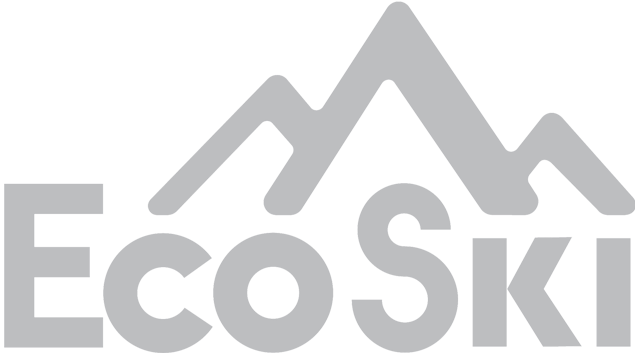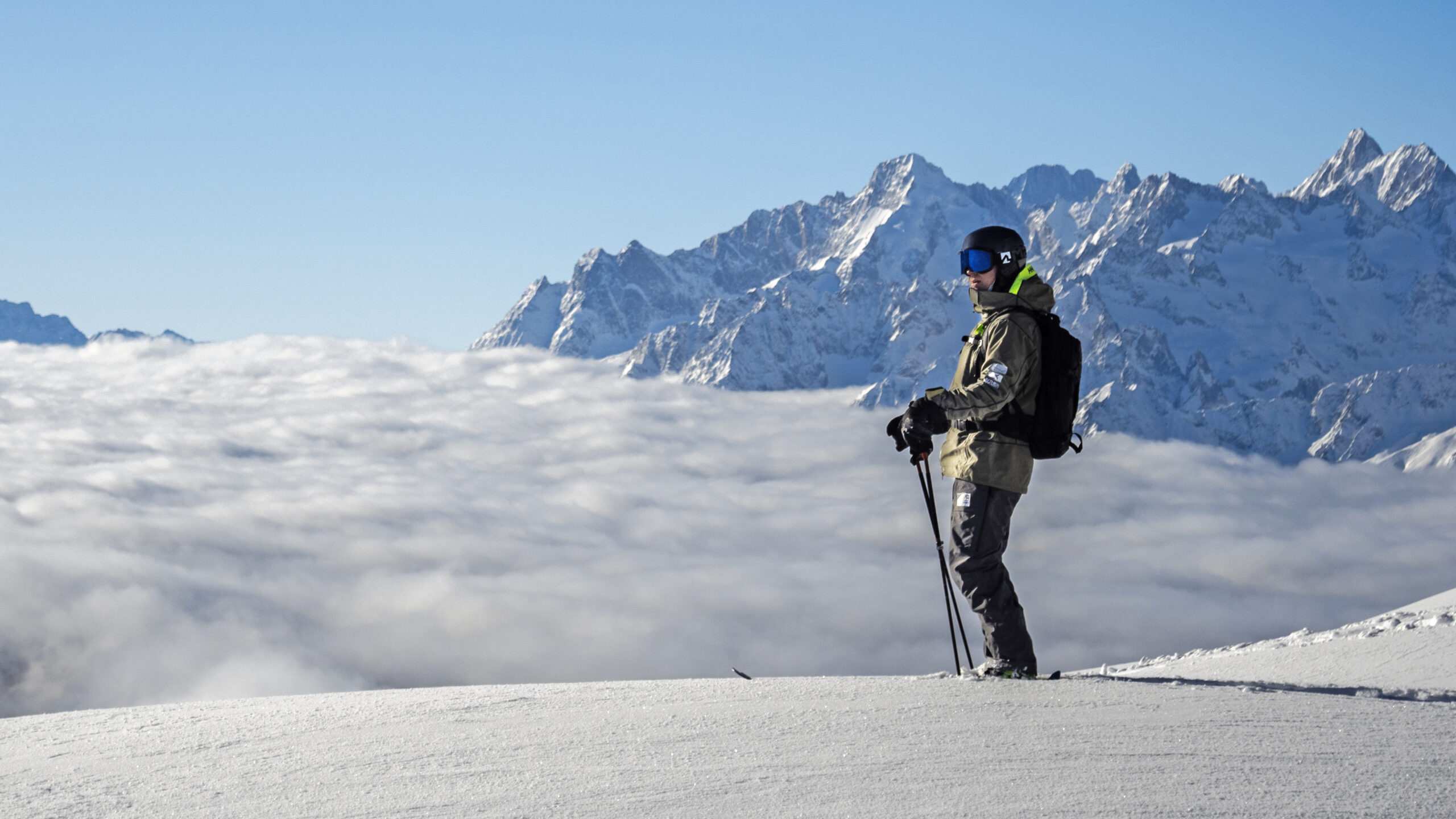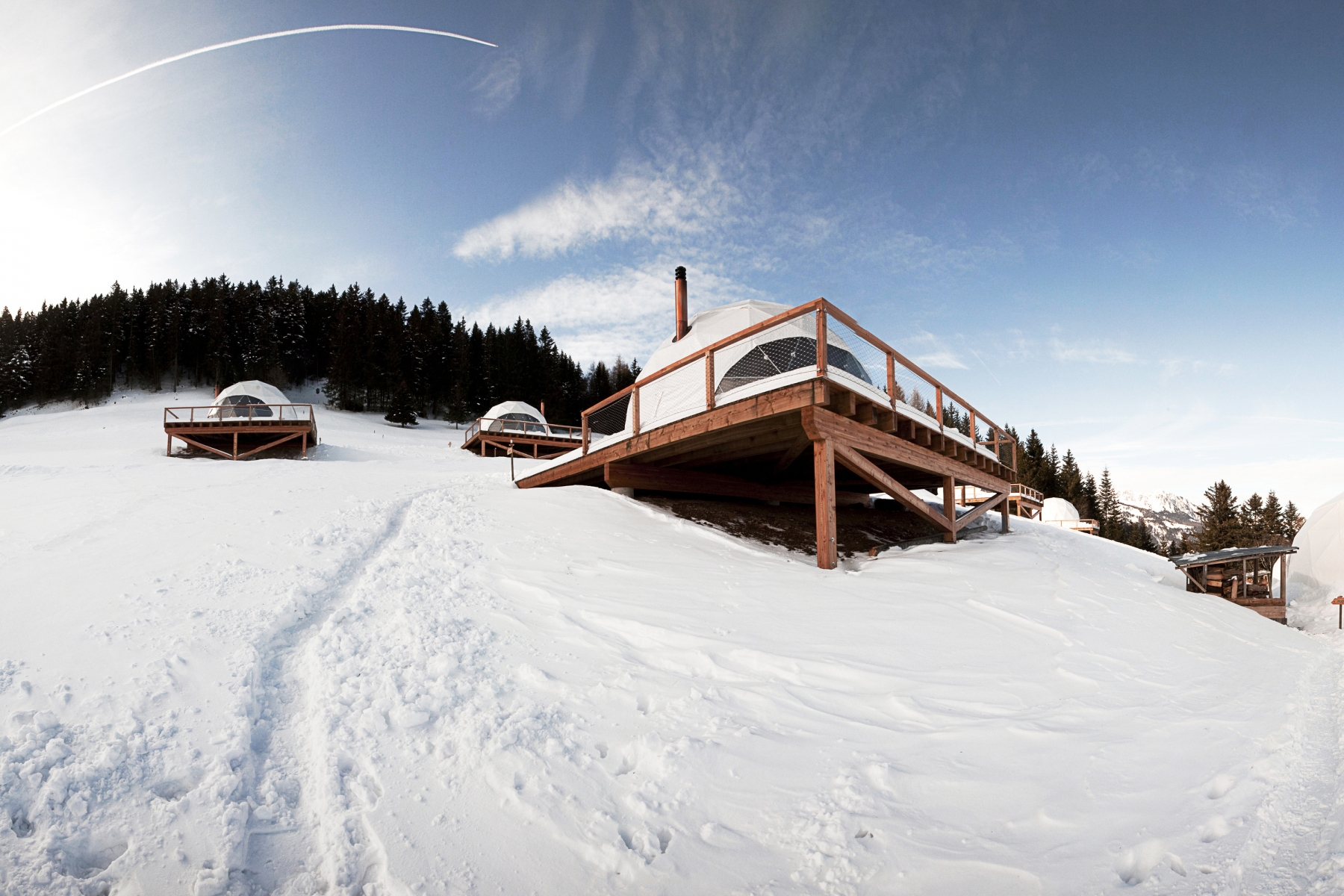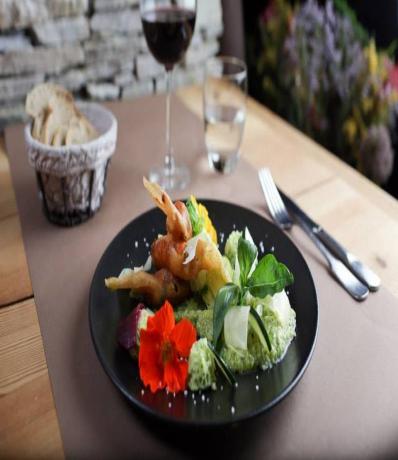This website uses cookies to ensure you get the best experience on our website. To read our full cookie policy please click here.
An Eco Skischool on a mission to make skiing greener
There are many ways you can help to reduce negative impact on the environment when you ski. One way is to choose one of the more eco friendly ski resorts, where local people and businesses are committed to finding a more sustainable approach to skiing.
One ski school in Switzerland is on a mission to ensure its practices are as friendly to the environment as possible. EcoSki chats to Lars Tanninen, the chairman of Eco Skischool Andermatt, to find out how his business is forging ahead of the rest.
ES: We were so excited to hear about your incredible ski school. How long have you been operating and what are the key ecological highlights that make you different from other schools?
Lars: We set up Eco Skischool Andermatt in 2019/20 with the mission to make the whole ski holiday process sustainable and to show our clients how much difference their choices can make. We saw a common perception that skiing is a luxury extra that generally has a negative impact on the environment. We were worried that it will start to get an image like the oil industry or fur farming and that kids would start to say ‘I don’t want to learn skiing because it’s against my environmental beliefs’ and that our sport would die.
We want to show that you can go skiing and feel good while doing it; if you make the right choices your impact might be less than staying home.
Eco Skischool Andermatt emphasises caring for nature and we lead by example. We encourage guests to arrive by train — Andermatt is accessible by train and Swiss trains already run on 85% renewable energy.
Our skiwear is from sustainable brands. We give clients a reusable stainless steel bottle to refill free at the resort’s fountain points serving local spring water. There is an awesome recycling system here and we support local restaurants serving local produce. Our website explains the whole concept.
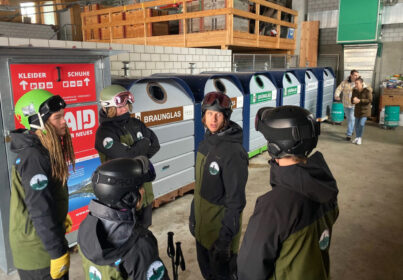
ES: How do you educate clients about your ethos without preaching?
Lars: We are a school and provide skills, knowledge and information. This concept works pretty well on every issue — we can show people options on how to be more efficient and consume less. Parents like our philosophy — we talk to kids about the mountains as an ecosystem and show them where the animals live in the harsh winter. It automatically make kids aware of their behaviour.
Our slogan “LEAVE ONLY TRACKS AND TAKE ONLY MEMORIES” is something people remember.
Many visitors are really impressed with the Swiss recycling system and how clean and litter-free it is here. When they say “I wish it was as clean in my city” we suggest they start an anti-littering movement back home.
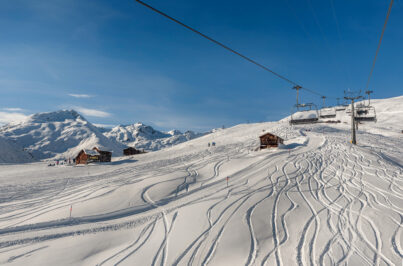 ES: Where would you recommend staying in Andermatt?
ES: Where would you recommend staying in Andermatt?
Lars: We have several partners including the Eco Lodge Basecamp Andermatt. This is heated with geothermal energy and carries the Swiss Minergie standard [for new and modernised buildings which make the most of renewable energy and have a low energy output]. They have a composting system and encourage guests to create as little waste as possible.
ES: What are the best bits about skiing Andermatt? How do you feel climate change is affecting your resort?
Lars: Our snow and our mountains is definitely the highlight. We are located right at the alpine main ridge and have a unique local weather system. We get about 10-16 metres of snowfall every year. We don’t need much artificial snow making and the snow making that we do use, for busy areas like around intersections or lifts, uses water from four local sources without damaging resources.
In Andermatt everything from our lifts to our houses are powered by local wind and hydropower — the lifts here run on 90% renewable energy. Many clients like to see the windmills and hydropower plants that help keep the resort running.
We are lucky to be high enough that our winters are still long and cold. Ski resorts with villages below 1000m are far more affected by climate change than Andermatt, for sure.
ES: Where do you get your ski kit from? Which brand would you recommend for their technical and sustainability credentials?
Lars: Generally mountain gear is a difficult issue because many basic technical problems are not solved yet — the membranes used to replace Goretex is a tough one — but there is a lot going on. Big names are slowly waking up (The North Face has developed a completely new approach with Futurelight technology, no membrane required), but the small brands like Puya are leading right now. We use their gear because it’s a great brand made out of recycled material and it practices closed loop recycling.
But many components, such as zippers, are proving difficult to solve. There is not a single manufacturer doing recycled zippers! The industry is working hard on these issues and comes up with new ideas every season.
ES: What are your top tips to be as eco-friendly a skier as possible?
Lars: Choose your resort well — look at where the energy comes from and how the resort handles trash and recycling. Arrive by train and lodge in accommodation with a sustainable energy concept. Eat local food. Don’t buy new gear every year. Take good care of your stuff, repair your old gear and it will last. I skied on local hand-made skis from Birdos for an incredible nine seasons, that’s around 100-120 skiing days per year. Investing in quality kit is better in the long run.
ES: What’s up your sleeve for the future?
Lars: We are looking all the time for new possibilities. Last winter we tested a new plant-based environmental ski wax called NZero and are always looking for new partners to cooperate on the whole infrastructure of skiing — Andermatt has put a lot of effort into become a leading ecological ski resort in Switzerland and there are a lot new plans.
Covering our glacier to protect it from melting has been done for years with great results. Snow farming is also big her — snow is pushed together in big piles and covered over summer. The melting is reduced so that early the next season it’s waiting there to be put on the piste without the need for snow cannons.
There is definitely a change in the thinking and we are happy to be part of it.
Follow the first sustainable ski school in the Swiss Alps on Instagram: ecoskischool.andermatt and Facebook: @Eco.Skischool.Andermatt
Favourite stories


